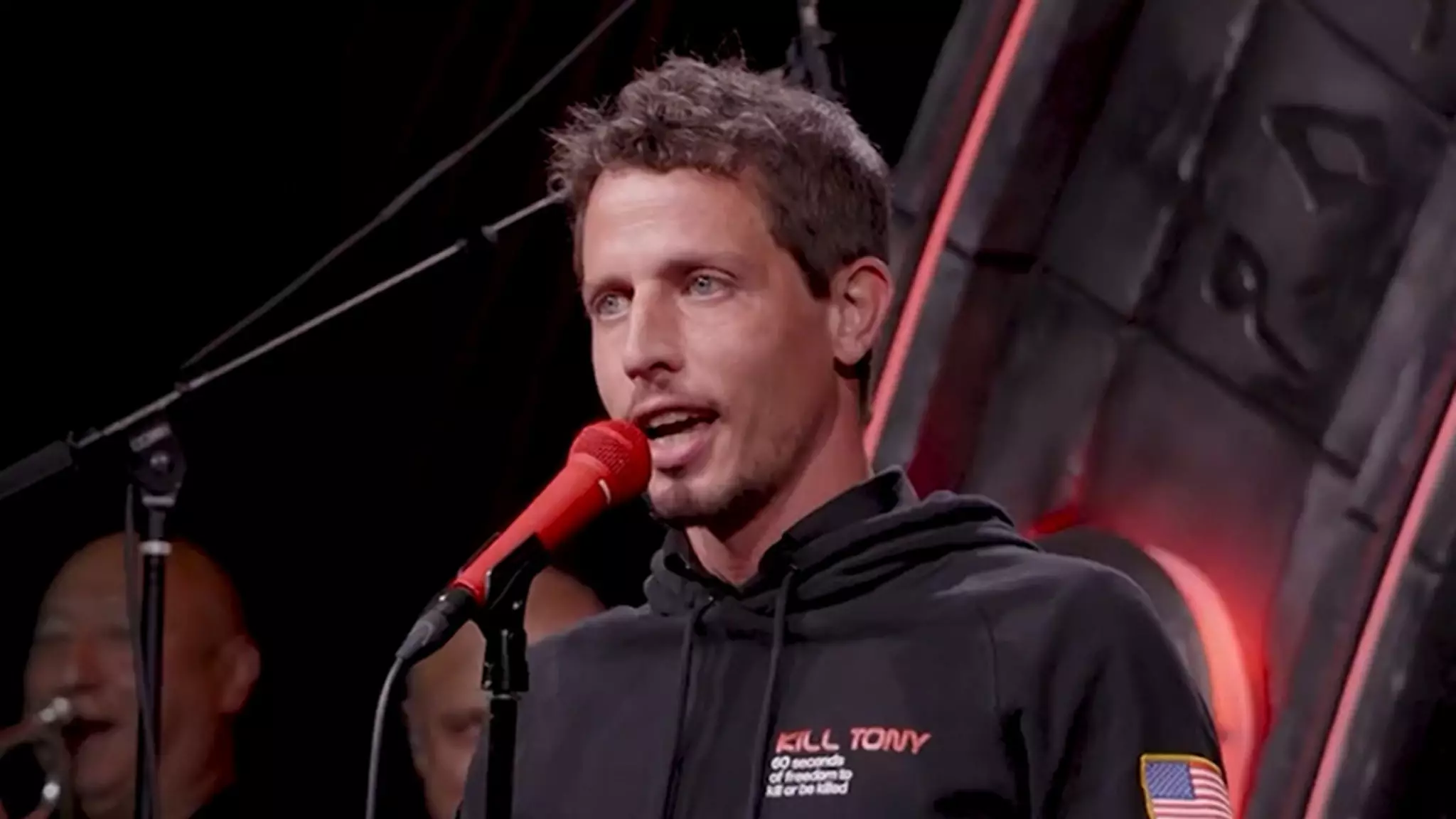In the realm of stand-up comedy, a thin line often separates humor from offensiveness. Such was the case during a recent performance by comedian Tony Hinchcliffe at a Donald Trump rally in Madison Square Garden. Hinchcliffe, known for his edgy and provocative style, attempted to satellite-launch his comedic career by warming up the audience. Instead, he found himself entangled in a web of controversy after making a joke that many deemed not only ill-timed but also insensitive. The joke likened Puerto Rico to a “floating island of garbage,” an unfortunate reference that coincided with the ongoing struggles faced by the island and its people, particularly in the wake of political turmoil and natural disasters.
The aftermath of Hinchcliffe’s joke was immediate and intense. Individuals from various political and social spheres criticized him for his apparent lack of empathy. Even Trump’s campaign team weighed in, suggesting that such humor could alienate Hispanic voters—a demographic the former president was attempting to engage. This backlash reflects a broader issue in comedy concerning accountability and the responsibility that comes with wielding humor as a weapon.
A Defiant Response
In the face of significant backlash, Hinchcliffe chose to confront the controversy head-on during a performance recorded the following night in Austin, Texas. Instead of retracing his steps and offering a retraction, he leaned into the hostility by declaring, “I’m currently under attack.” While some may interpret this as a brave assertion of free speech, it critically raises questions about the ethics of humor, especially when it comes at the expense of marginalized communities.
Hinchcliffe’s comments in Austin were noteworthy for their simultaneous defiance and acknowledgment of the uproar. While he claimed to love Puerto Ricans and expressed admiration for their intelligence, the inconsistencies in his message may further alienate those he purported to respect. His statement, “I apologize to absolutely nobody,” indicates a stubborn refusal to accept any responsibility for his words—a position that may resonate with his fanbase but appears dismissive to those genuinely hurt by his joke.
The Ramifications for Comedy and Beyond
Humor has always been a complex domain dealing with societal issues, and Hinchcliffe’s situation illustrates a tangible shift in audience expectations. In today’s age, where political correctness and cultural sensitivity are at the forefront of discourse, comedians are often left grappling with the repercussions that arise from crossing certain boundaries. While edgy humor has its place, the demands for empathy and understanding are active forces challenging comedians to reconsider their material and the contexts in which they perform.
Tony Hinchcliffe’s stance might secure him a particular niche audience, potentially even more warmup spots with Trump. However, one must consider the long-term implications of such an approach. Will he unintentionally entrench himself further in a cycle of controversy that ultimately dilutes the quality of his work? As audiences evolve and cultural sensitivities deepen, comedians might find themselves in need of a recalibrated comedic sensibility that embraces humor without crossing lines that hurt or marginalize. In an impressionable world desperate for healing, perhaps a more thoughtful approach to comedy could pave the way for a more inclusive platform—one where laughter unites rather than divides.

